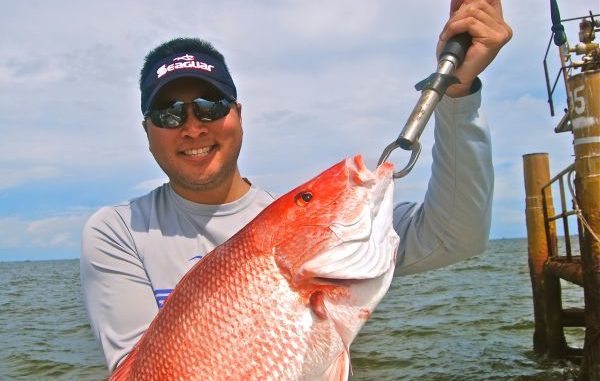
2015’s opening date still to be determined, LDWF says
The state’s recreational red snapper season will close on Dec. 31, but the opening date for 2015 has not yet been determined, according to a press release from the Louisiana Department of Wildlife and Fisheries.
Using real-time date from the state’s new LA Creel program, estimates indicate Louisiana anglers landed about 605,000 pounds of snapper in 2014 so far, short of the state’s projected 14 percent share of the Gulf of Mexico harvest. But had the department accepted the nine-day federal waters season originally proposed by NOAA, estimates indicate only about 150,000 pounds of snapper would have been landed.
The Louisiana Wildlife and Fisheries Commission will determine the state’s 2015 recreational season dates in their early meetings next year, according to the release.
On Jan. 1, 2014, LDWF withdrew from the Marine Recreational Information Program in favor of the LA Creel program because of MRIP’s history of providing poor data and its inability to monitor landings in real-time, the release states.
The department has continued negotiations with NOAA to recognize the validity of LA Creel and recently reached an agreement to benchmark LA Creel and officially establish it as a replacement for MRIP.
Through the benchmarking process, the Department will run the MRIP survey side-by-side with LA Creel for the 2015 recreational fishing season, and NOAA will compare the results from both surveys and adjust historic recreational landings estimates accordingly.
Once LA Creel is benchmarked, Louisiana will no longer run MRIP, and officials hope that NOAA will support LA Creel and use its more precise results to conduct future stock assessments. This process paves the way for other Gulf states to adopt their own recreational angler survey programs, improve data collection, and help move management of the recreational red snapper fishery forward. Beginning in January 2015, Louisiana anglers can expect to see an increased survey presence as Department personnel conduct both surveys statewide throughout the calendar year.
“Our anglers have always been incredibly patient and helpful with our biologists, whether at the dock, over the phone, or via email,” LDWF Secretary Robert Barham said. “We ask for and greatly appreciate their continued cooperation as we take this important step in our quest towards regional management.”


